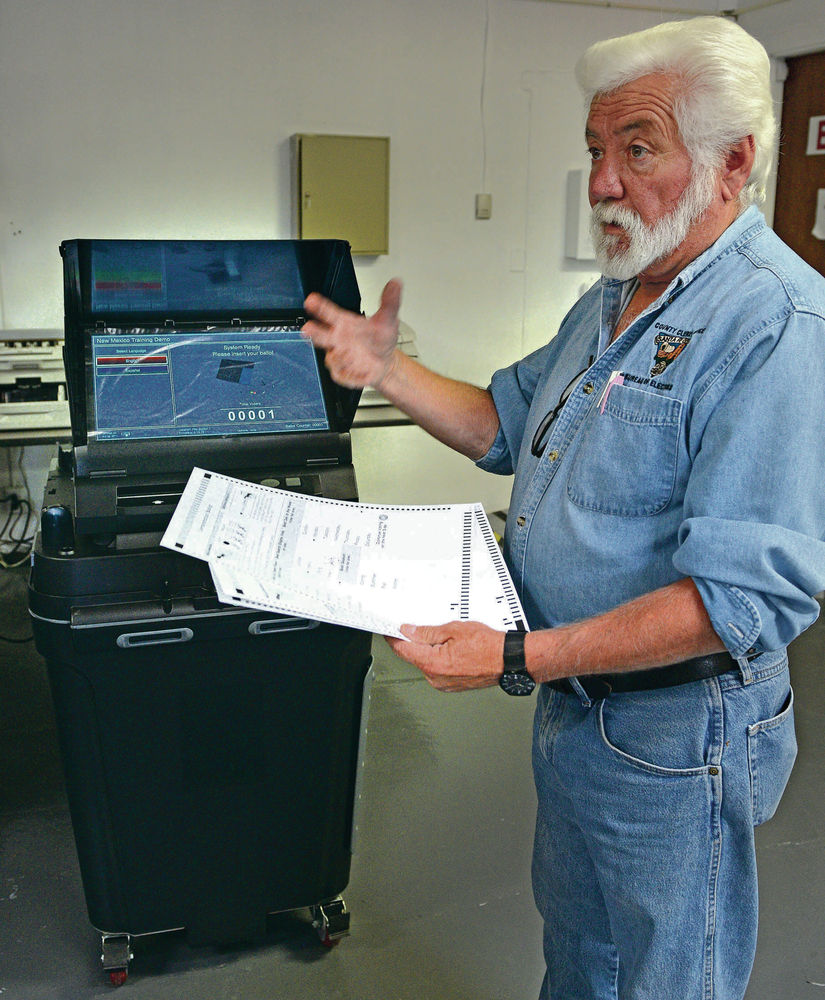

Marilyn Marks, executive director of the Coalition for Good Governance, a plaintiff in the lawsuit that led to Halderman’s examination of the machines, said it appears that CISA bent to political pressure to dilute the recommendation. Halderman expressed disappointment in the change, saying it “dramatically weakens” the security that would be provided by the combination of mitigation measures in the advisory in Georgia and other jurisdictions that rely on QR codes for counting votes. Instead, after noting that the vulnerabilities could be exploited to change the barcode so it doesn’t match a voter’s selections, it includes a note in parentheses that says, “If states and jurisdictions so choose, the ImageCast X provides the configuration option to produce ballots that do not print barcodes for tabulation.”

The recommendation to use full-face ballots rather than summary ballots with QR codes is not included in the final version of the advisory released Friday. A summary ballot, in contrast, lists only the voter’s selection for each race. Security experts have warned that the QR codes could be manipulated to reflect different votes than the voter intended.Ī version of the advisory sent to election officials last week said, “When barcodes are used to tabulate votes, they may be subject to attacks exploiting the listed vulnerabilities such that the barcode is inconsistent with the human-readable portion of the paper ballot.” To reduce that risk, the advisory suggested that jurisdictions configure the machines, where possible, to “produce traditional, full-face ballots, rather than summary ballots with QR codes.”Ī full-face ballot looks like a hand-marked paper ballot with all of the choices for each race listed and a bubble next to the voter’s choice filled in by the machine. The votes are tallied by a scanner that reads the barcode.
#IMAGECAST MACHINES CODE#
But in some places, including Georgia, almost all in-person voting is done on the affected machines.ĭominion has defended the machines as “accurate and secure.”Īs they’re used in Georgia, the machines print a paper ballot that includes a barcode - known as a QR code - and a human-readable summary of the voter’s selections. In most of those places, they are used only for people who can’t physically fill out a paper ballot by hand. The machines are used by at least some voters in 16 states, according to a voting equipment tracker maintained by watchdog Verified Voting. Alex Halderman, an expert witness in a long-running lawsuit that is unrelated to false allegations stemming from the 2020 election. The advisory CISA released Friday is based on a report generated by University of Michigan computer scientist J. The company has filed defamation lawsuits in response to incorrect and outrageous claims made by high-profile Trump allies. The agency said that although the vulnerabilities should be quickly mitigated, the agency “has no evidence that these vulnerabilities have been exploited in any elections.”ĭominion’s systems have been unjustifiably attacked since the 2020 election by people who embraced the false belief that the election was stolen from former President Donald Trump. Cybersecurity and Infrastructure Security Agency, or CISA, has to do with vulnerabilities identified in Dominion Voting Systems’ ImageCast X touchscreen voting machines, which produce a paper ballot or record votes electronically. The nation’s leading cybersecurity agency released a final version on June 3 of an advisory it previously sent state officials on voting machine vulnerabilities in Georgia and other states that voting integrity activists say weakens a security recommendation on using barcodes to tally votes.


 0 kommentar(er)
0 kommentar(er)
